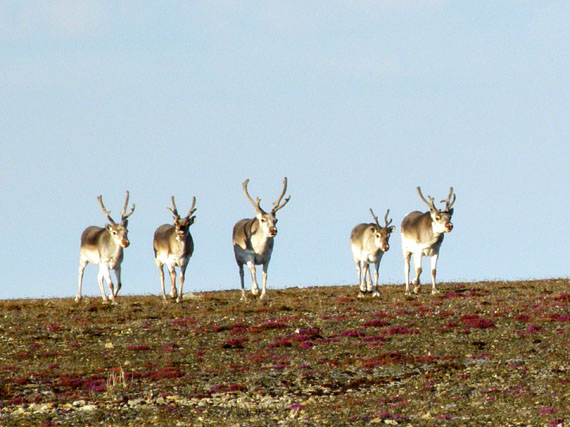International Inuit org plans to create new wildlife committee
The idea for a new Inuit Circumpolar Council committee came from delegates to an ICC wildlife summit in Ottawa last November.

When the Inuit Circumpolar Council’s general assembly meets in Utqiaġvik, Alaska (formerly known as Barrow) this July, it will have new strategies to consider on economic development, wildlife and education.
The ICC recently held a wildlife management summit last November in Ottawa, because “the right to provide traditional food for Inuit families is under assault by local, national and international policies and regulations that are often influenced by misinformation disseminated by well-funded animal rights campaigns,” said summit’s recently released report.
“Since the beginning of colonization, Inuit have been misunderstood at best and criminalized at worst for practicing our way of life,” the report states. “This has cascaded into a host of problems that threatens Inuit cultural sustainability and identity.”
To improve conditions, ICC delegates to the Ottawa meeting said they want to establish a Circumpolar Inuit Wildlife Committee.
Its mission, as described by the ICC, would be “to collaboratively, cooperatively and inclusively preserve and protect Inuit cultural rights to food sovereignty by providing a unified pan-Arctic Inuit voice.”
It would aim to overcome barriers to food sovereignty presented by national borders, international agreements and conservation regimes.
“Together we are stronger, and it is hoped that, by forming this committee, that Inuit will be better equipped to develop and execute strategies collaboratively,” the report states. “There is opportunity for Inuit to better leverage human rights instruments to assert and advance self-determination and protect rights to hunting, fishing, and gathering.”
To that end, the ICC also wants to establish and support a Circumpolar Inuit Wildlife Network to support information sharing, learning and communication about Inuit rights, wildlife management and food sovereignty within the network and with the new management committee.
This will let Inuit know why it’s important to interact with international processes, build capacity among Inuit in wildlife management, and create a platform for promising practices between Inuit, said the 40-page document.
As well, last March in Alaska, the ICC held its economic summit; the education summit took place last month in Nuuk, Greenland.
ICC Greenland president Hjalmar Dahl, who hosted the education summit, said in a news release that “we heard how our different histories of colonization and pathways to self-determination have landed us in dissimilar educational places today.”
“But what was striking was the similarities in our struggle and in our agreement to build on the Inuit-focused success stories we heard of from Inuit in all four countries in which we live.”
ICC Chair Okalik Eegeesiak ended the three-day event by saying “this summit has validated my belief that Inuit must be put first in our own education, and that we are equipped to do so.”
ICC’s executive council plans to draft recommendations on education, as well, in advance of July’s general assembly, an ICC release said.